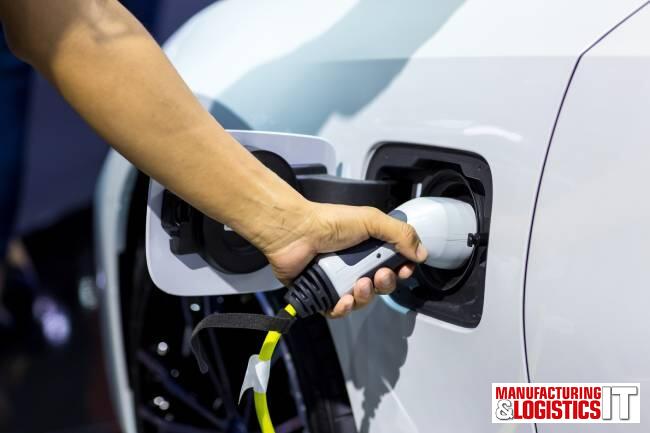Porozumění změnám v předpisech o nabíjení elektromobilů
Nedávné oznámení o zrušení požadavku na stavební povolení pro dobíjecí stanice pro elektromobily slibuje změnu prostředí pro podniky i spotřebitele. Očekává se, že tento odvážný krok bude mít významný dopad nejen na instalaci dobíjecí infrastruktury, ale také na celé odvětví logistiky.
Reakce logistického sektoru na změny právních předpisů
Po rozhodnutí vlády odstranit byrokratickou zátěž, která je tradičně spojena s instalací dobíjecích míst pro elektromobily, se v logistické komunitě zvedla vlna pozitivní nálady. Logistické odvětví je tímto vývojem nadšeno, protože může zefektivnit nezbytný přechod k udržitelnějším dopravním řešením. Není pochyb o tom, že snížení překážek pro podniky je krok správným směrem, který potenciálně usnadní hladší integraci ekologických technologií do logistického rámce.
Stephanie Haszczynová, která v tomto dialogu hraje klíčovou roli, zdůrazňuje praktické důsledky: "Toto oznámení je vítaným a pragmatickým krokem pro odvětví logistiky, které se snaží dekarbonizovat. Díky tomu, že k instalaci dobíjecích míst pro elektromobily není potřeba stavební povolení, mohou podniky efektivněji investovat do potřebné infrastruktury."
Úsilí o dekarbonizaci v odvětví logistiky
Logistický průmysl se stále více snaží snižovat svou uhlíkovou stopu. Díky odstranění překážek při plánování mohou logistické firmy urychlit svůj odklon od fosilních paliv. To přichází v kritické době, kdy jsou udržitelné postupy prioritou pro mnoho zúčastněných stran na globálním trhu.
Na této ambiciózní cestě k dekarbonizaci se logistické subjekty snaží o předpisy, které jejich cíle spíše podporují, než aby jim bránily. I přes dosažený pokrok však stále přetrvávají problémy. Jednu z hlavních překážek tvoří kapacita stávající elektrické sítě, v níž se logistické podniky často nacházejí daleko od městských center. Takové lokality mohou omezovat přístup k dostatečnému množství energie, což vede ke zpoždění při dosahování cílů udržitelnosti.
Nadcházející výzvy: Modernizace elektrické sítě
- Potřeby infrastruktury: S tím, jak se logistické firmy připravují na zavádění elektrických vozidel, je potřeba spolehlivých dodávek elektřiny prvořadá.
- Geografická omezení: Mnoho logistických provozů sídlí v oblastech, které mohou mít problémy s přístupem k elektrické kapacitě potřebné pro velký počet nabíjecích míst pro elektromobily.
- Investice do modernizace: Aby bylo možné splnit cíle dekarbonizace, je třeba investovat do modernizace elektrické sítě. Neúspěch v této oblasti by mohl snížit účinnost iniciativ v oblasti elektrických vozidel.
Vzhledem k tomu, že se toto odvětví rozvíjí, je zřejmé, že robustní infrastruktura pro nabíjení je nezbytná. Bez odpovídajícího napájení mohou být i ty nejlepší záměry v oblasti ekologického nabíjení neúspěšné.
Širší dopad na logistiku
Tento posun v předpisech o plánování podtrhuje širší trend v logistice, kde je rovnováha mezi regulací a inovacemi stále důležitější. Vzhledem k tomu, že dekarbonizace se stává důležitější než kdy jindy, musí se logistické společnosti přizpůsobit a efektivně zvolit strategii. Výhody účasti na této transformaci nelze přeceňovat; může vést k úsporám nákladů, zvýšení provozní efektivity a větší spokojenosti zákazníků.
Předvídání reakcí trhu
Jak bude trh reagovat na to, že logistické společnosti začnou tyto změny zavádět? Tento trend pravděpodobně povede k nárůstu investic do elektromobilů, a to nejen kvůli splnění ekologických požadavků, ale také kvůli uspokojení poptávky spotřebitelů po ekologičtějších alternativách. Poskytování služeb prostřednictvím elektrických vozových parků může zlepšit pověst společnosti a oslovit rostoucí zákaznickou základnu, která upřednostňuje udržitelnost.
Vize budoucnosti společnosti Logistics UK
Společnost Logistics UK si představuje budoucnost, v níž předpisy podpoří vzestupnou trajektorii logistických inovací. Za tímto účelem prosazují vizi, v níž legislativní rámce přednostně podporují dekarbonizační úsilí, a nikoli je zpomalují. Vztah mezi takovými předpisy a logistikou je symbiotický; jasnější cesty v logistice mohou podpořit klima, které podporuje udržitelné postupy.
Závěr: Sladění s udržitelnými postupy
S tím, jak se mění prostředí pro nabíjení elektromobilů, může odvětví logistiky výrazně získat. Díky odstranění požadavků na plánování se mohou společnosti rychle přizpůsobit vyvíjejícímu se energetickému prostředí, a hrát tak zásadní roli při řešení problémů udržitelnosti. Výběr všestranného logistického partnera, jako je GetTransport.com, může při navigaci v těchto změnách znamenat zásadní rozdíl. Nejenže poskytuje cenově dostupná globální nákladní řešení, ale podporuje také přepravu zboží všech tvarů a velikostí - od stěhování domácností až po dodávky objemného nákladu.
První krok směrem k nové éře logistiky začíná pochopením měnícího se prostředí a zapojením se do něj. Přechod k ekologičtější logistice není jen prospěšný - je nezbytný pro přežití a růst ve stále více ekologicky uvědomělém společenském rámci. Ti, kteří chtějí prozkoumat možnosti přepravy nákladu, aniž by přitom rozbili banku, by pro své potřeby doručování neměli hledat nic jiného než GetTransport.com. Prozkoumejte jejich nabídku ještě dnes a udělejte logistická rozhodnutí vhodná pro budoucnost - zvažte jejich služby pro svou příští přepravní potřebu. Získejte nejlepší nabídky.

 Posouzení změn v povolení k plánování pro nabíjení elektrických vozidel v logistickém sektoru">
Posouzení změn v povolení k plánování pro nabíjení elektrických vozidel v logistickém sektoru">